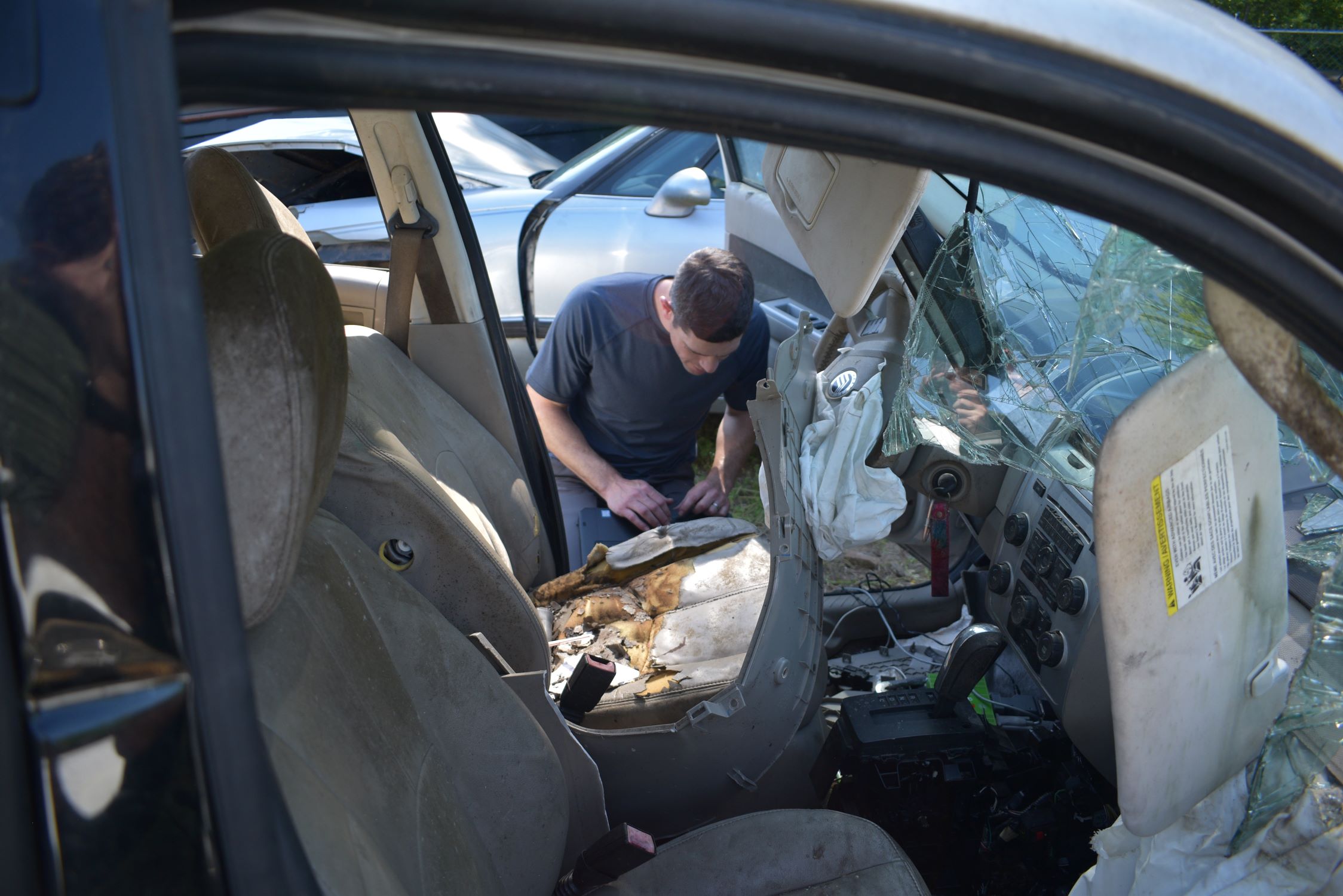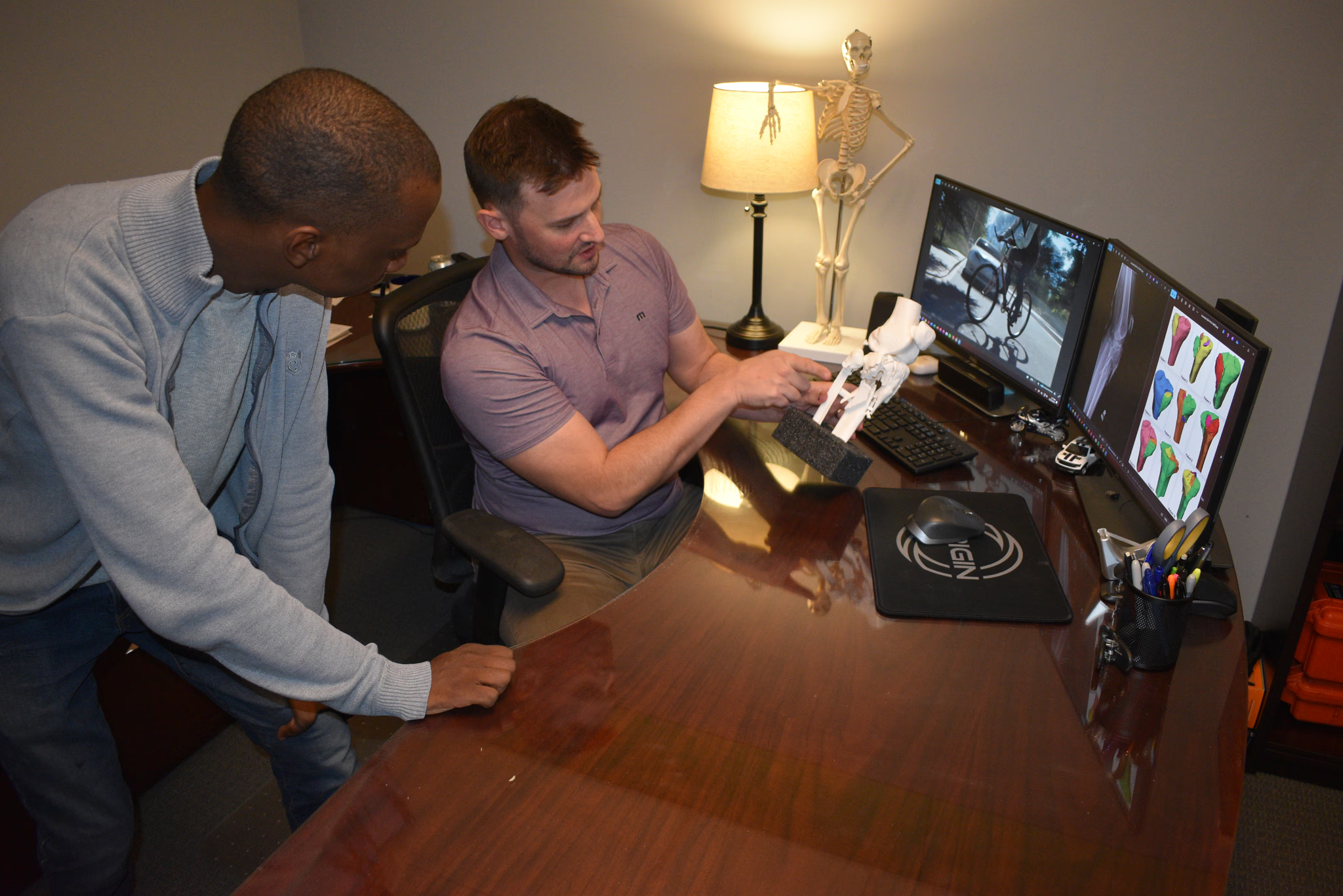
Understanding the Role of a Forensic Engineer
Understanding the Role of a Forensic Engineer
Peyton Nielsen
Peyton Nielsen



What is a Forensic Engineer?
A forensic engineer is a person who uses science and engineering principles to investigate an incident or failure for the purpose of reaching conclusions regarding the events surrounding the incident or failure. The work of a forensic engineer is typically related to criminal or civil court proceedings. After all, the root word for forensic is the Latin word “forensis” which means “in open court”.
Forensic engineers are often used as expert witnesses in legal cases. These cases can be civil, criminal, or regulatory.
A forensic engineer's investigation can help lawyers, judges, and jurors understand complex issues. This is important when they lack a scientific or engineering background. So, a good forensic engineering description must include both the application of scientific principles to reach conclusions about an incident and the possible presentation of such conclusions in a legal context. Forensic engineers are also hired by private individuals and companies to investigate an incident to better understand what happened, why it happened, and how to prevent it in the future.
Engineering is the branch of science concerned with the design, construction, and operation of machines and structures. In these areas, engineers must hold paramount the safety, health, and welfare of the public.
When something goes wrong with that mandate, the forensic engineer must look into the details of the design, construction, or operation of machines or structures for the purpose of evaluating an incident or failure. The purpose of the investigation and analysis is first to determine if, in fact, something failed or went wrong, and then to determine how and why it went wrong. Most importantly, the forensic engineer must be able to communicate the technical details of the investigation to a lay audience in a court of law.
In practice, a forensic engineer will choose an area of specialization based on their training, experience and background. Engineering science forensics examples include accident reconstruction, crash investigation, structural failures, medical device failures, fire and explosion investigations, biomechanics, and many others.
A mechanical engineer may focus on vehicles or on fires/explosions. A biomedical engineer may focus on medical device failures. Forensic civil engineering looks at structural failures in buildings and other load-bearing structures or issues related to roadway design.
How to Become a Forensic Engineer?
Most universities do not offer a Forensic Engineering undergraduate degree. Most engineers who practice forensic engineering begin their careers in other fields where they develop specialized knowledge. Civil and mechanical engineers may begin investigating car crashes due to the overlapping engineering principles practiced earlier in their careers. Similarly, biomedical engineers studying or designing medical devices may transition to investigating medical device failures to use their work experience in a new way.
In addition to studying general physics and engineering, forensic engineers must also stay updated on new technology and software. This helps them reach the most accurate conclusions using state-of-the-art tools and technologies. Most will regularly take online, or in-person courses related to their expertise to stay at the forefront of their field.
What is a Forensic Engineer?
A forensic engineer is a person who uses science and engineering principles to investigate an incident or failure for the purpose of reaching conclusions regarding the events surrounding the incident or failure. The work of a forensic engineer is typically related to criminal or civil court proceedings. After all, the root word for forensic is the Latin word “forensis” which means “in open court”.
Forensic engineers are often used as expert witnesses in legal cases. These cases can be civil, criminal, or regulatory.
A forensic engineer's investigation can help lawyers, judges, and jurors understand complex issues. This is important when they lack a scientific or engineering background. So, a good forensic engineering description must include both the application of scientific principles to reach conclusions about an incident and the possible presentation of such conclusions in a legal context. Forensic engineers are also hired by private individuals and companies to investigate an incident to better understand what happened, why it happened, and how to prevent it in the future.
Engineering is the branch of science concerned with the design, construction, and operation of machines and structures. In these areas, engineers must hold paramount the safety, health, and welfare of the public.
When something goes wrong with that mandate, the forensic engineer must look into the details of the design, construction, or operation of machines or structures for the purpose of evaluating an incident or failure. The purpose of the investigation and analysis is first to determine if, in fact, something failed or went wrong, and then to determine how and why it went wrong. Most importantly, the forensic engineer must be able to communicate the technical details of the investigation to a lay audience in a court of law.
In practice, a forensic engineer will choose an area of specialization based on their training, experience and background. Engineering science forensics examples include accident reconstruction, crash investigation, structural failures, medical device failures, fire and explosion investigations, biomechanics, and many others.
A mechanical engineer may focus on vehicles or on fires/explosions. A biomedical engineer may focus on medical device failures. Forensic civil engineering looks at structural failures in buildings and other load-bearing structures or issues related to roadway design.
How to Become a Forensic Engineer?
Most universities do not offer a Forensic Engineering undergraduate degree. Most engineers who practice forensic engineering begin their careers in other fields where they develop specialized knowledge. Civil and mechanical engineers may begin investigating car crashes due to the overlapping engineering principles practiced earlier in their careers. Similarly, biomedical engineers studying or designing medical devices may transition to investigating medical device failures to use their work experience in a new way.
In addition to studying general physics and engineering, forensic engineers must also stay updated on new technology and software. This helps them reach the most accurate conclusions using state-of-the-art tools and technologies. Most will regularly take online, or in-person courses related to their expertise to stay at the forefront of their field.



What is Accident Reconstruction?
Accident Reconstruction is the process of determining the events and circumstances surrounding an accident. The subject accident could be a vehicular crash or an incident such as a slip and fall or a crash between individuals on a ski hill. A forensic engineer will use evidence and analytical tools to understand how an accident occurred. They apply their knowledge of general physics, vehicle dynamics or biomechanics in this process.
For example, in a traffic accident reconstruction, an engineer will use physics and vehicle dynamics concepts to analyze the crash. They might also use photogrammetry, computer simulations and other software, and specific scientific research. This helps them find the most likely conclusions regarding the events that occurred in the crash. Crash reconstruction may involve any type of vehicle crashing into anything, including pedestrians. The main purpose of accident reconstruction is to show why an accident happened. This helps fact finders, like a jury, better understand who is at fault. The fault may lie with one person or several people in the accident. It could also be due to a mechanical or structural failure unrelated to those involved.
However, not all accidents can be fully reconstructed. It’s possible that the available evidence is not sufficient to determine the origins of an accident. In a case where the evidence is insufficient, the accident reconstructionist may only present the conclusions they were able to determine given the limited information available. Often it is possible to definitively determine portions of an accident, but not describe the entirety of the event.
At Compass Consulting Engineers, much of our work is in vehicle accident reconstruction. But we also have experts who specialize in different types of reconstruction or other areas of forensic engineering. Our capabilities range from biomechanical incident reconstruction to ski sports accidents and even include bicycle and pedestrian crashes.
What is Accident Reconstruction?
Accident Reconstruction is the process of determining the events and circumstances surrounding an accident. The subject accident could be a vehicular crash or an incident such as a slip and fall or a crash between individuals on a ski hill. A forensic engineer will use evidence and analytical tools to understand how an accident occurred. They apply their knowledge of general physics, vehicle dynamics or biomechanics in this process.
For example, in a traffic accident reconstruction, an engineer will use physics and vehicle dynamics concepts to analyze the crash. They might also use photogrammetry, computer simulations and other software, and specific scientific research. This helps them find the most likely conclusions regarding the events that occurred in the crash. Crash reconstruction may involve any type of vehicle crashing into anything, including pedestrians. The main purpose of accident reconstruction is to show why an accident happened. This helps fact finders, like a jury, better understand who is at fault. The fault may lie with one person or several people in the accident. It could also be due to a mechanical or structural failure unrelated to those involved.
However, not all accidents can be fully reconstructed. It’s possible that the available evidence is not sufficient to determine the origins of an accident. In a case where the evidence is insufficient, the accident reconstructionist may only present the conclusions they were able to determine given the limited information available. Often it is possible to definitively determine portions of an accident, but not describe the entirety of the event.
At Compass Consulting Engineers, much of our work is in vehicle accident reconstruction. But we also have experts who specialize in different types of reconstruction or other areas of forensic engineering. Our capabilities range from biomechanical incident reconstruction to ski sports accidents and even include bicycle and pedestrian crashes.


Expert Witness Criteria
Although it is counter-intuitive to the term “witness,” an expert witness is usually not someone who has seen an incident or crime unfold with their own eyes. A legal expert witness is someone who is permitted to testify at trial due to their knowledge or expertise in a particular subject that is important to the case.
Using crash reconstruction as an example, the expert typically was not at the scene of the crash. However, their reconstruction and accident investigation can be used as evidence in a trial. The forensic reconstructionist can be examined and cross-examined by the plaintiff and defense attorneys. The role of the expert witness is to provide the best evidence possible to help lawyers, judges, and jurors understand complex issues surrounding the crash event.
An important part of being an expert witness is also to present specialized topics in a manner that can be understood by people who do not have that same expertise. Arguably the most important job of an expert witness in court is to explain their findings to a non-technical audience. Visualization exhibits such as analysis-based animations and highly accurate 3D injury printed models are very effective ways to convey complex ideas
Expert Witness Criteria
Although it is counter-intuitive to the term “witness,” an expert witness is usually not someone who has seen an incident or crime unfold with their own eyes. A legal expert witness is someone who is permitted to testify at trial due to their knowledge or expertise in a particular subject that is important to the case.
Using crash reconstruction as an example, the expert typically was not at the scene of the crash. However, their reconstruction and accident investigation can be used as evidence in a trial. The forensic reconstructionist can be examined and cross-examined by the plaintiff and defense attorneys. The role of the expert witness is to provide the best evidence possible to help lawyers, judges, and jurors understand complex issues surrounding the crash event.
An important part of being an expert witness is also to present specialized topics in a manner that can be understood by people who do not have that same expertise. Arguably the most important job of an expert witness in court is to explain their findings to a non-technical audience. Visualization exhibits such as analysis-based animations and highly accurate 3D injury printed models are very effective ways to convey complex ideas

LET’S WORK TOGETHER
We’re looking forward to hearing how we can help.
Call our office at 720-458-9190 or click below.
TELL US ABOUT YOUR CASE


LET’S WORK TOGETHER
We’re looking forward to hearing how we can help.
Call our office at 720-458-9190 or click below.
TELL US ABOUT YOUR CASE


LET’S WORK TOGETHER
We’re looking forward to hearing how we can help.
Call our office at 720-458-9190 or click below.
TELL US ABOUT YOUR CASE
Corporate Headquarters
Compass Consulting Engineers PC
10875 Dover St., # 900 Westminster, CO 80021
Pacific Northwest Region
Compass Consulting Engineers PC
13036 SE Kent-Kangley Rd, Suite 7, Kent, WA 98030
Canadian Region
Compass Consulting Engineers Inc.
1975 McCallum Road, Unit 115 #1029, Abbotsford, BC V2S 3N3
Corporate Headquarters
Compass Consulting Engineers PC
10875 Dover St., # 900 Westminster, CO 80021
Pacific Northwest Region
Compass Consulting Engineers PC
13036 SE Kent-Kangley Rd, Suite 7, Kent, WA 98030
Canadian Region
Compass Consulting Engineers Inc.
1975 McCallum Road, Unit 115 #1029, Abbotsford, BC V2S 3N3
Corporate Headquarters
Compass Consulting Engineers PC
10875 Dover St., # 900 Westminster, CO 80021
Pacific Northwest Region
Compass Consulting Engineers PC
13036 SE Kent-Kangley Rd, Suite 7, Kent, WA 98030
Canadian Region
Compass Consulting Engineers Inc.
1975 McCallum Road, Unit 115 #1029, Abbotsford, BC V2S 3N3